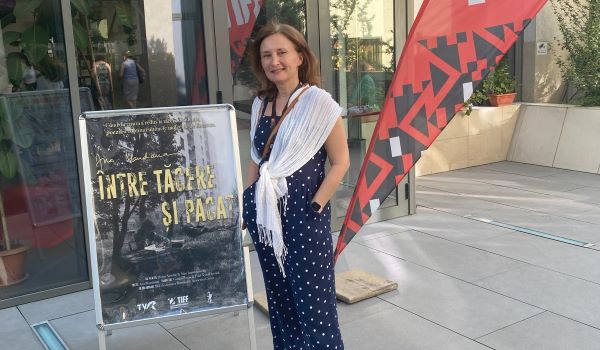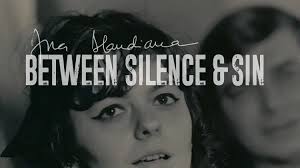Feted across Europe, Prof’s film celebrates unique Romanian voice for democracy
Feted across Europe, Prof’s film celebrates unique Romanian voice for democracy

Like all filmmakers, Professor Diana Nicolae had high hopes for her latest project, a documentary about legendary Romanian dissident and poet Ana Blandiana, whose subtle but charged writing contributed to the downfall of dictator Nicolae Ceaușescu.
Her hopes are coming true.
Nicolae’s film about Blandiana, “Between Silence and Sin,” has found a big audience in Europe, where the horrors of the Ceaușescu regime still reverberate, and the rise of extreme right-wing parties again threaten democracy across the continent and around the world.
Nicolae said Blandiana’s activism supported Romania’s democratic transformation after the 1989 fall of communism.
“She dared when nobody else did, when no men dared to talk or do anything,” Nicolae said, citing Petre Mihai Bacanu, a Romanian journalist from the period.
Released in May with its world premiere at the Krakow Film Festival in Poland, Nicolae said “Between Silence and Sin” is playing to packed movie houses across Europe, with appearances at prestigious industry markets and festivals like IDFA, Visions du Reel, and the Transylvania International Film Festival (TIFF). This fall, those appearances will continue with official selections at festivals in Spain, Bulgaria and Romania, as well as launching in the United States with the support of the Romanian Cultural Institute in New York.
Professor and poet John Gery of the University of New Orleans commented on how deeply “Between Silence and Sin” moved him.
“This film restores our faith in what we have always known but sometimes forget – that as Blandiana has proven her whole life, great poetry indeed changes the world,” Gery wrote.
An audience before royalty
The film will screen in October for the Royal House of Spain during festivities surrounding the Princess of Asturias literary award presentation, which Blandiana will receive in recognition of her promotion of cultural and humanistic values.
The award was previously received by such luminaries as Arthur Miller, Mario Vargas Llosa, Bob Dylan and Meryl Streep.
“This is an incredible honor for Ana Blandiana and Romania, and I’m excited to attend,” Nicolae said.
Nicolae said it’s difficult to overstate the impact that Blandiana has had on Romanian literature and history. The author’s works were banned under Ceaușescu, a ruthless dictator who served as general secretary of the Romanian Communist Party from 1965 to 1989. Ceaușescu was overthrown during the Romanian Revolution and he and his wife were executed.
Though Blandiana’s poetry was banned, Romanians continued to read it, cribbing favored passages.
“They carried them in their coat pockets, next to their hearts. It was the Romanian samizdat,” Nicolae said.
For the film, she documented important historical moments through archival films and shot original footage with Blandiana and people she influenced. Her hope was to reignite and preserve the memory of not only a great poet and activist but a consequential time from the recent past.
“Ana was one of the earliest promoters of democracy in Romania and is still one of its most beloved poets, particularly for my generation. Unfortunately, she is not known well enough by younger generations and hopefully my film can change that,” Nicolae said.
Still prolific, Blandiana, 82, will publish a new volume of poetry, tentatively called “Between Two Centuries,” this fall, Nicolae said.
A full professor of documentary and television and founder of RowanDOCs in the Department of Radio, Television & Film, Nicolae said presenting at major film festivals can be a launch pad for distribution.
She’s already landed a distribution deal with TVR, the Romanian National Television network, and hopes, following the film’s tour of the festival circuit, to air it on platforms around the world.
Though well established in the U.S., she said Romania is never far from her thoughts.
“There are so many good stories from the region that are fairly unknown and waiting to be told,” said Nicolae, a former television journalist in Romania who emigrated to the U.S. to teach and make films. “I’m a Romanian American, but I’m still connected to that part of the world, to my Romanian roots and heritage that are haunting my dreams and my imagination obsessively and will never cease.”
See the trailer and reviews and learn about upcoming screenings at www.betweensilenceandsin.com.